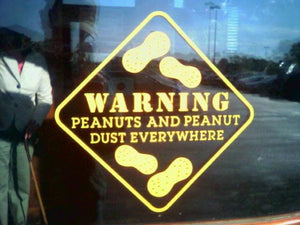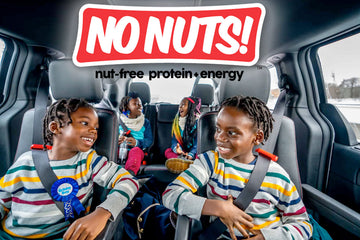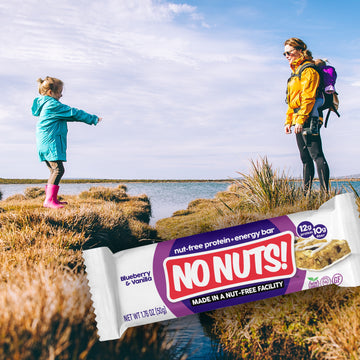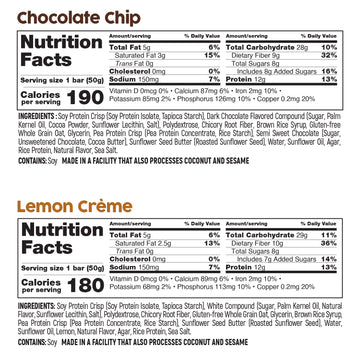Life with a Peanut Allergy
Nov 08, 2019
Life with a Peanut Allergy
When it comes to food allergies, peanuts are one of the worst offenders. Doctors and other medical experts advise those with peanut allergies to always have an epinephrine injection readily available in case of a reaction. EpiPen, Auvi-Q, and Adrenaclick are some of the most common carried injectors to use when preventing an allergic reaction.
Peanut allergies are usually a lifelong allergy, though 20% of the kids who are diagnosed with peanut allergies do outgrow it. Peanut allergies in children are on the rise. In the past 10 years, the number of U.S. children with peanut allergies tripled. In Canada and the UK kids with nut allergies are also on the rise.
Tree nuts are not the same as a peanut. Tree nuts, such as cashews, walnuts, almonds, etc., come from trees. While peanuts come from the ground and are called legumes. Recent studies that up to 40% of people who have peanut allergies also suffer from tree nut allergies. There are some disagreements among people regarding whether or not those with peanut allergies will suffer a reaction simply from touching the peanut. There are very few cases where people have had allergic reactions from touching peanuts; however, if an affected person does handle peanuts and then touch their mouth, nose or eye, then the individual could have a serious allergic reaction. It is always best to be cautious.
Food Allergen Labeling and Consumers Protection Act
The FDA passed the FALCPA, or Food Allergen Labeling and Consumers Protection Act, which requires that every packaged food product that is sold in the U.S., containing peanuts or any other major food allergen, must list that allergen on the label.
Top of Form
Bottom of Form
Food Foods that contain these ingredients should be avoided:
- Beer nuts
- Peanut flour
- Nut pieces
- Goobers
- Artificial nuts
- Extruded peanut oils
- Peanut protein
- Nut meat
- Mixed nuts
- Mandelonas - peanuts that are soaked in almond flavoring
- Ground nuts
- Peanut butter
- Monkey nuts
Peanuts are sometimes found in these items:
- Chili
- Marzipan
- Nougat
- Egg rolls
- Baked goods, like cookies and pastries
- Enchilada sauce
- Mole sauce
- Candy, like Baby Ruth and Hershey’s
Some unexpected sources of peanuts:
- Any food that contains cold-pressed, expelled or extruded peanut oil, which contains peanut proteins
- Vegetarian food products, especially meat substitutes
- Egg rolls
- Specialty pizzas
- Pancakes
- Mexican, Asian and African dishes
- Sweets like baked goods, cookies, pies, hot chocolate, pudding
- Sauces ranging from hot sauce to pesto to mole sauce. Also includes salad dressing and chili sauce.
- Pet food
- Glazes and marinades
*The list is only examples of foods where peanuts have been unexpectedly found. However peanuts are NOT always found in these types of food. This highlights the importance of each examining ingredients labels.
Keep these things in mind:
- Cross contamination in food is a very serious issue, especially within the food service industry. Restaurants whose dishes frequently contain peanuts or peanut oils include Indonesian, Vietnamese, Asian, African, Indian, Thai, Mexican and Chinese. Ice cream shops and bakeries could also be considered dangerous to individuals with a severe peanut allergy.
- The FDA doesn’t consider highly refined peanut oil as an allergen. A series of studies show that many people that have allergies can, in fact, eat peanut oil (not the expelled, extruded or cold pressed kind). The only way to know for sure if peanut oil is safe for you is to contact your physician.
- Arachis oil is another name for peanut oil.
- Sunflower seeds are produced on the same equipment as peanuts.
- Alternative nut butters, like sunflower seed butter and soy nut butter, are produced on the same equipment as tree nuts and peanuts (in some cases).
- Peanuts are sometimes present in compost added to lawns. Before hiring a contractor ask about the use of peanut hulls in the compost
Health Disclaimer
This blog provides general information and discussions about health and related subjects. The information and other content provided in this blog, or in any linked materials, are not intended and should not be construed as medical advice, nor is the information a substitute for professional medical expertise or treatment.
If you or any other person has a medical concern, you should consult with your health care provider or seek other professional medical treatment. Never disregard professional medical advice or delay in seeking it because of something that have read on this blog or in any linked materials. If you think you may have a medical emergency, call your doctor or emergency services immediately.
The opinions and views expressed on this blog and website have no relation to those of any academic, hospital, health practice or other institution.







